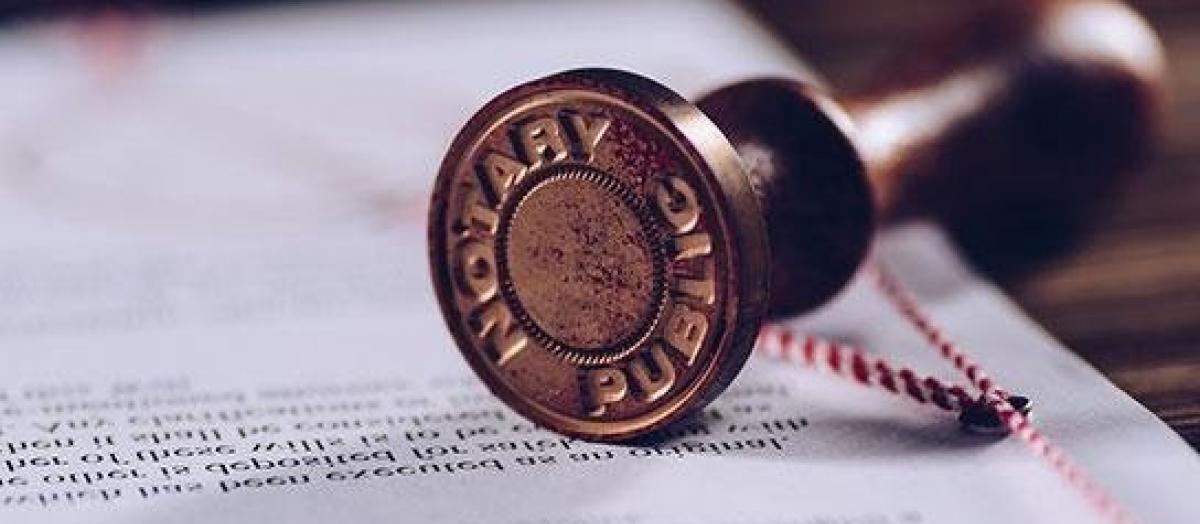Handling Deceased Estate Matters: Guidance With Legal Procedures
Handling Deceased Estate Matters: Guidance With Legal Procedures
Blog Article
Demystifying Notarial Work: Simplifying the Role and Relevance of Notaries
In the intricate internet of lawful documents and verification, notaries stand as pillars of assurance and authenticity. Their role, usually shrouded in mystery for several, brings substantial weight in guaranteeing the validity and stability of critical records. As guardians of legitimacy and truth, notaries play an essential component in our culture, yet their job is not constantly completely comprehended. By deciphering the intricacies bordering notarial techniques and losing light on the significance of their acts, a more clear understanding emerges of the important duty notaries play in maintaining the material of legal and contractual arrangements.
The History of Notarial Work
How did notarial job progress over time to end up being an integral component of legal and business purchases? The background of notarial job go back to ancient people, where scribes played a vital duty in tape-recording essential info and verifying records. As societies proceeded, the requirement for a more formalized system to ensure the credibility of arrangements emerged. This resulted in the development of notaries, individuals selected by the state to work as objective witnesses in legal matters.
Throughout the Center Ages, notaries gained prestige in Europe, with their functions expanding to include drafting lawful papers, licensing signatures, and maintaining records. The increase of international trade additionally highlighted the relevance of notarial operate in confirming agreements and arrangements throughout borders.
In the contemporary age, notaries continue to play an important role in lawful and organization transactions by verifying identifications, validating the credibility of documents, and protecting against fraud. Their function in certifying the credibility of arrangements adds a layer of safety and depend the ever-evolving landscape of business and law.

Obligations and Obligations of Notaries
The historic evolution of notarial work from old human beings to the contemporary era has actually shaped the distinctive responsibilities and responsibilities that notaries support in legal and organization purchases today. Notaries play an essential duty in confirming the authenticity of papers and the identity of notaries. One of their primary responsibilities is to witness the finalizing of crucial records, such as wills, deeds, and contracts, to make certain that all parties are participating in contracts purposefully and willingly. Notaries likewise confirm that signatories are of sound mind and not under duress or coercion.
In addition, notaries are entrusted with providing affirmations and oaths, which are essential in legal proceedings and the execution of testimonies. They certify copies of original documents, supplying guarantee to organizations that the copies hold true reproductions of the originals. Notaries need to preserve accurate records of all transactions they supervise to make sure transparency and responsibility. Overall, the obligations and duties of notaries are important in protecting the stability and legality of numerous records and transactions.
Notarial Certificates and Signatures
Exhibiting thorough attention to information, notarial certifications and signatures act as important components in validating the credibility of legal files. Notarial certificates typically include essential details such as the day of notarization, the names of the signatures, a description of the document, and the notary's main seal. These certificates give a clear record of the notarial act, making sure that the document can be easily identified and traced back to the notary that oversaw the procedure.
Signatures play an essential function in notarial job, as they top article represent the arrangement and approval of the parties included. Notaries meticulously witness the finalizing of records to confirm the identification of the signatures and verify that they are authorizing of their own free will. By attaching their main seal and trademark to the record, notaries certify that the required procedures have been adhered to and that the document is valid and enforceable.
Basically, notarial certifications and trademarks are the trademark of authenticity in lawful deals, giving assurance to all events involved that the files are legitimate and binding.
Importance of Notarial Acts

Notarization Refine Discussed
Clarifying the registration process gives quality on the important steps associated with confirming lawful records. The registration procedure usually starts with the private offering the record to a notary public. The notary then validates the signer's identification via acceptable recognition approaches. When the identification is confirmed, the notary ensures that the private signing the record does so willingly and without any type of browbeating.

Verdict

Notarial certificates usually have essential details such as the date of notarization, the names of the notaries, a summary of the file, and the notary's main seal. These certifications offer a clear document of the notarial act, guaranteeing that the document can be easily recognized and traced back to the notary that supervised the procedure.
By affixing their main seal and signature to the paper, notaries certify that the necessary treatments have actually been adhered to and that the document is enforceable and legitimate.
By validating the identification of the signatures, validating their determination to enter right into the arrangement, and certifying the day and location of the signing, notaries play an important role in maintaining the legitimacy of lawful files.After the record is signed, the notary will certainly fasten their official seal or stamp onto the paper.
Report this page